Post by Zoie Harpole, undergraduate in Psychology and Interdisciplinary Neuroscience at Portland State University. Zoie has joined multiple outreach visits through nwnoggin.org.
As a student working towards my degree in psychology and interdisciplinary neuroscience at PSU, I have had the wonderful opportunity to work with Northwest Noggin over the past couple of years.
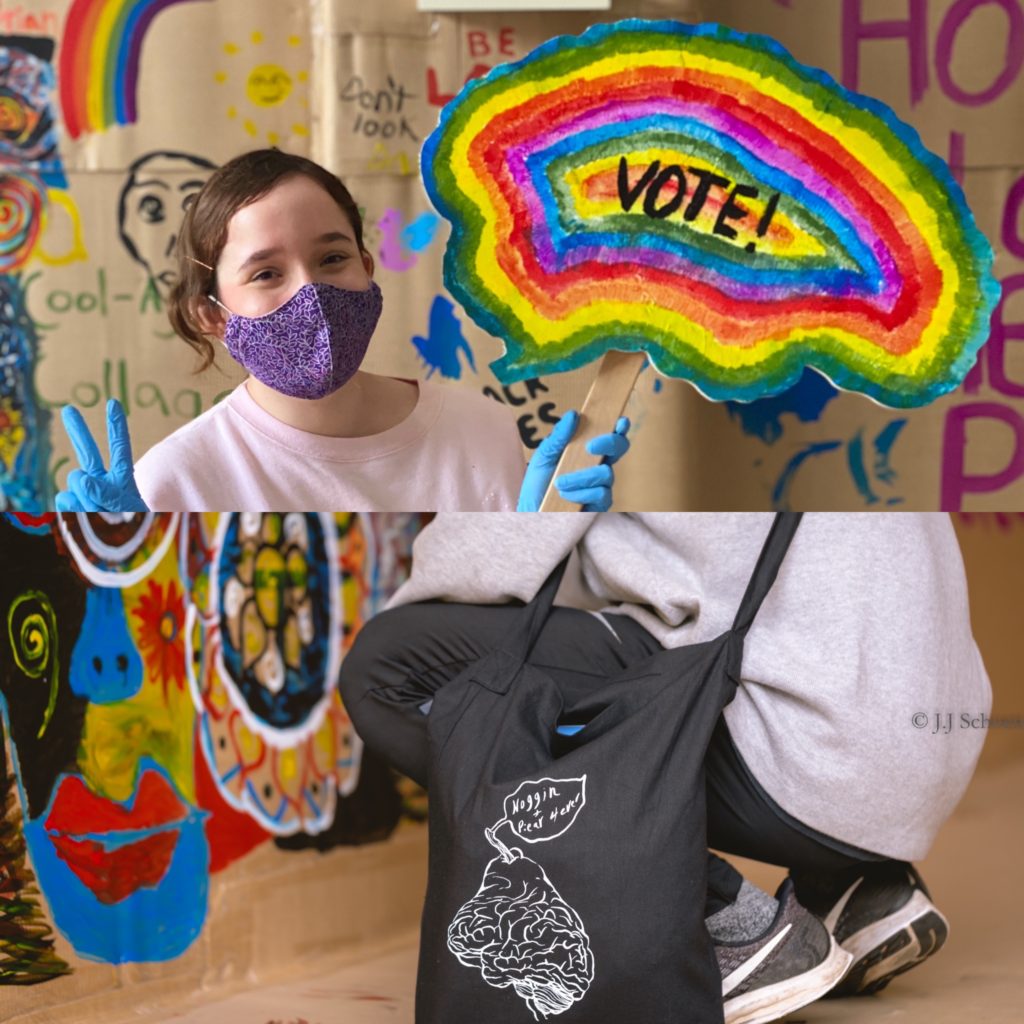
LEARN MORE: Returning to find a voice
Working with so many different communities and being able to learn from them while passing on knowledge from my studies has easily been my most rewarding and fulfilling experience at PSU!
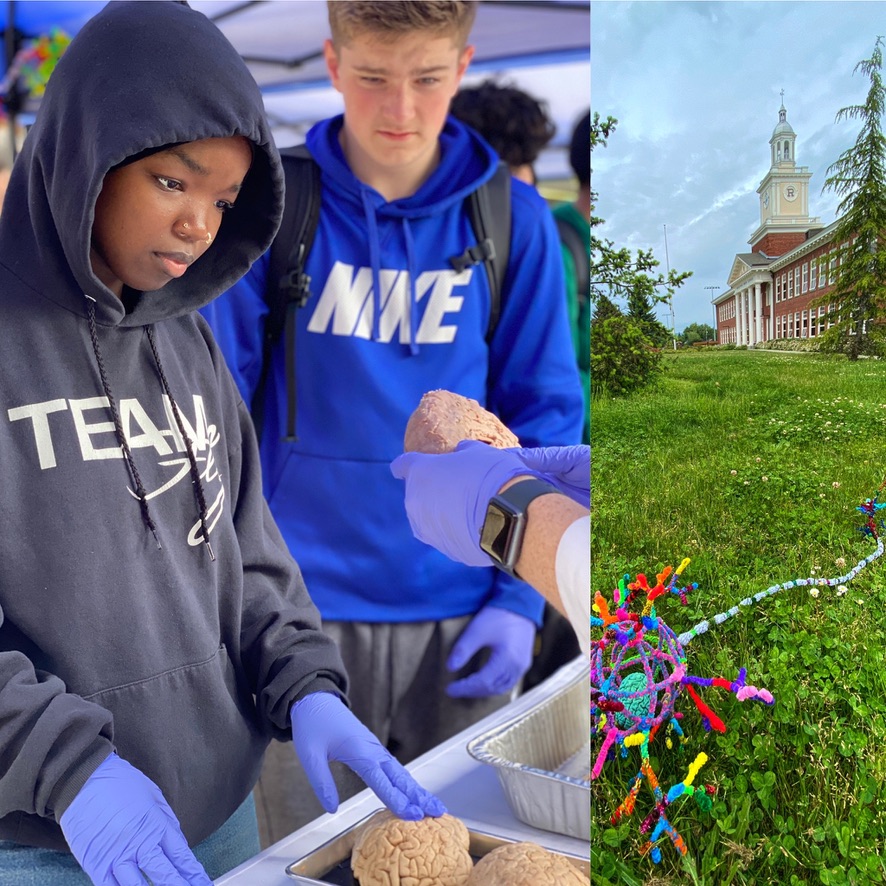
This week, Northwest Noggin had the opportunity to visit the lovely faculty and students of Roosevelt High School. From the very first class that came out to visit after we set up, we knew we were in for a very fun and educational day.
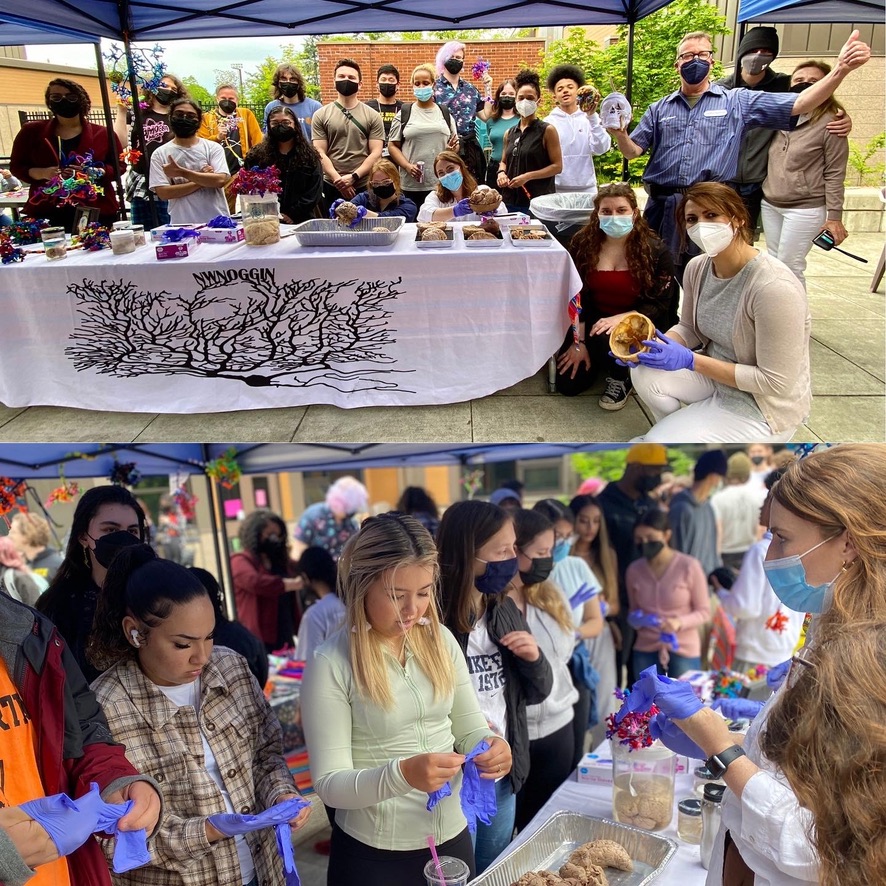
We had gathered at Roosevelt in North Portland (“True North“) with a crowd of enthusiastic outreach volunteers! I was joined by Aaron Eisen from Oregon Health & Science University, and Lucille Thornhill, Grace Taylor, Nazzy Hassan, Gabriel Latcu, Emerson Ross, Bobby Gifford, Victoria Ambriz, Angel Flores Rosas, Yasaman Farhand, Hannah Shawo, Lauren Kuiper, Matthew Lindars and Tira Gaston from PSU.
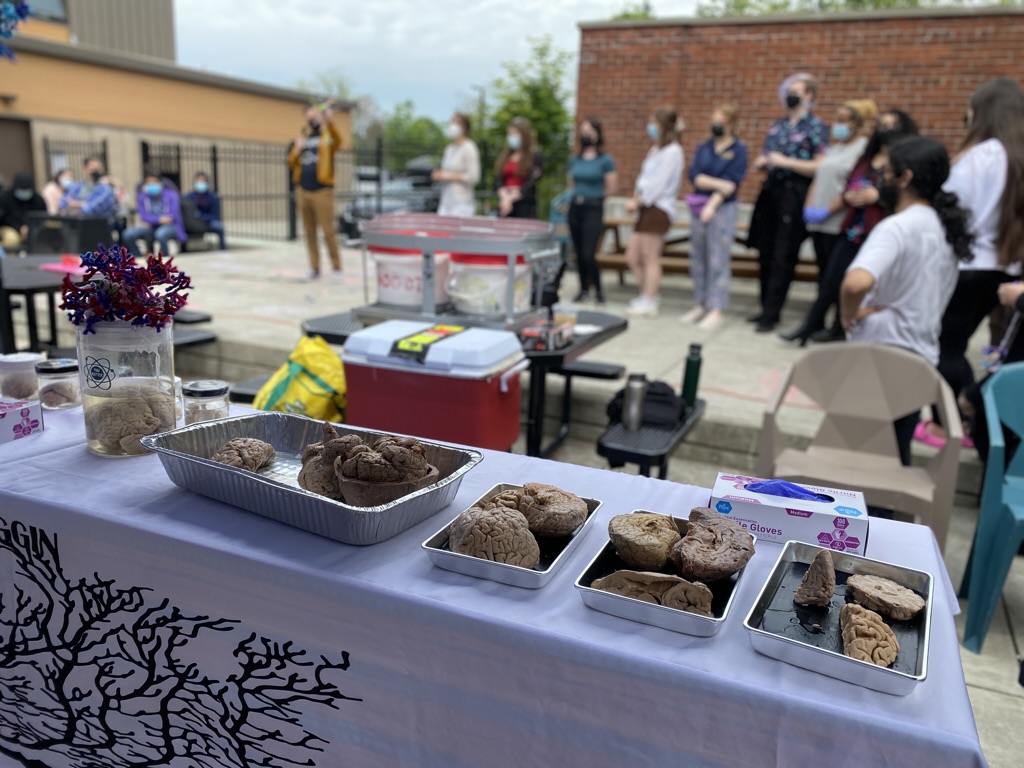
My fellow PSU undergraduate Tira and I were very excited to see young minds curious to learn all about how different parts of the brain work with one another and how they function!
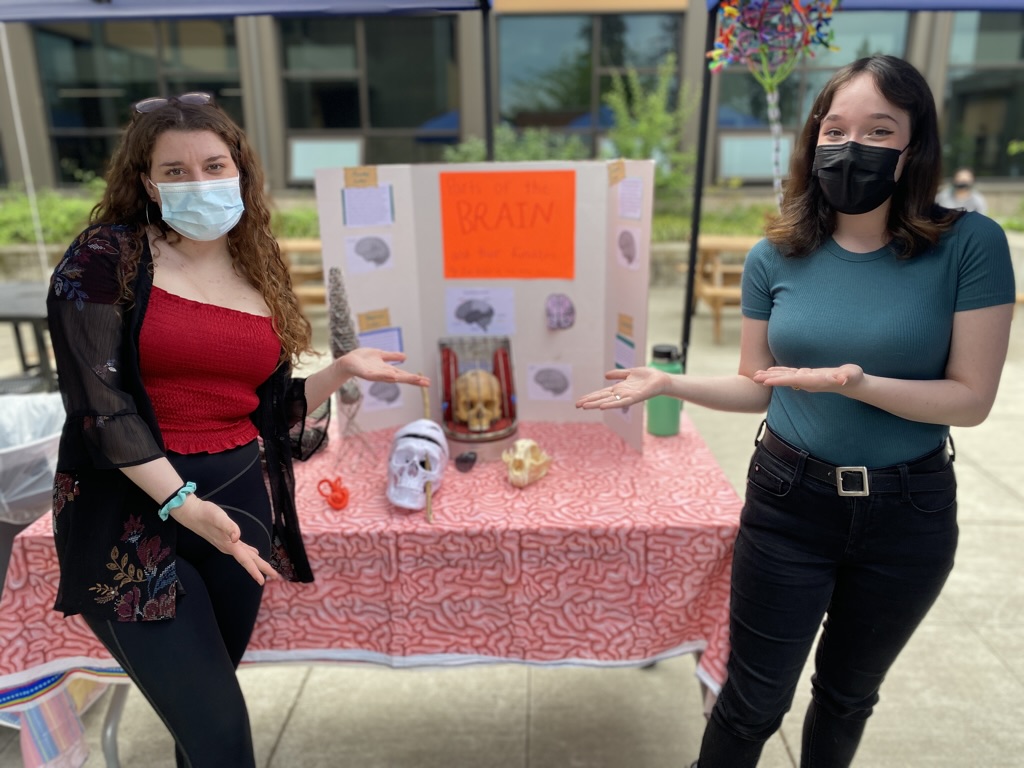
While all of the students at Roosevelt sincerely impressed our team with how much they already knew about brains, one star student in particular really stood out to me. One of Roosevelt’s freshmen, Vincent, was not only eager to learn from us, but to share with us his incredibly vast knowledge of psychology and neuroscience as well!
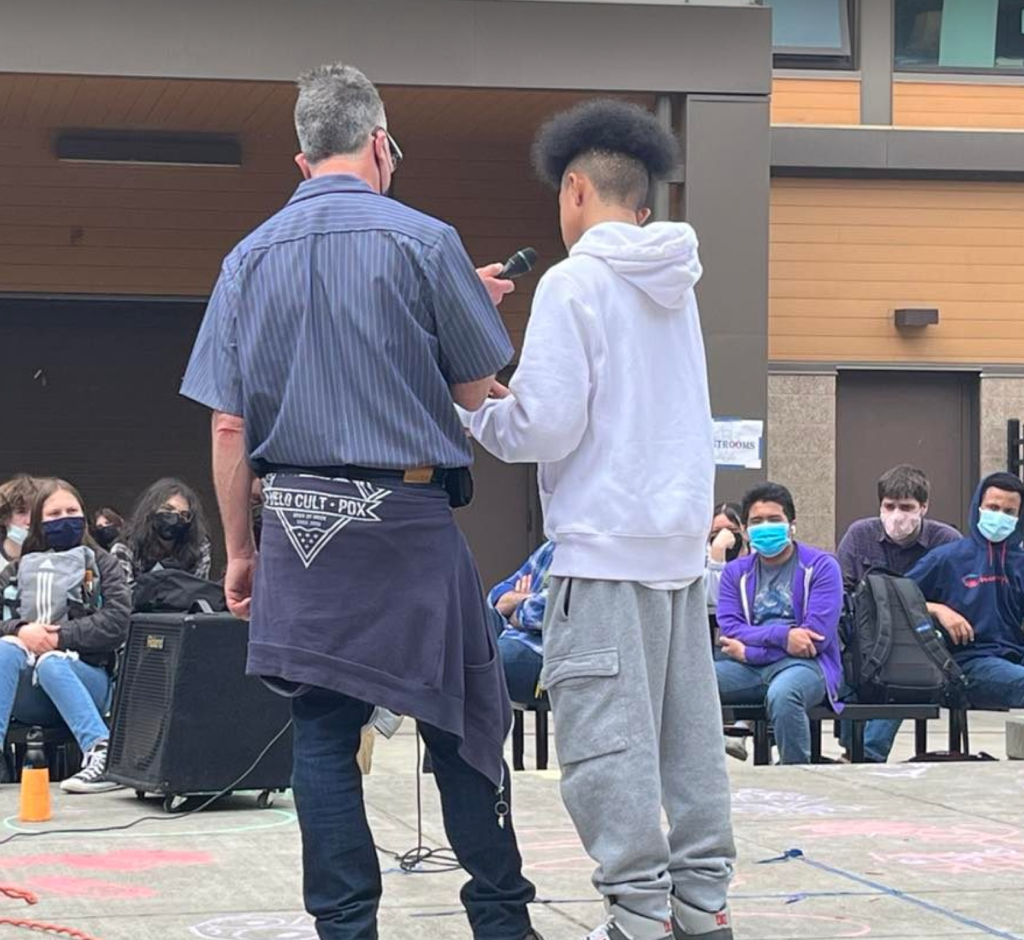
Vincent was able to take the microphone with our PSU neuroscience instructor Bill Griesar and help introduce his fellow classmates to some of the more complex areas of the brain in great detail. I can easily see Vincent becoming an educator himself in the future. In fact, he already is!
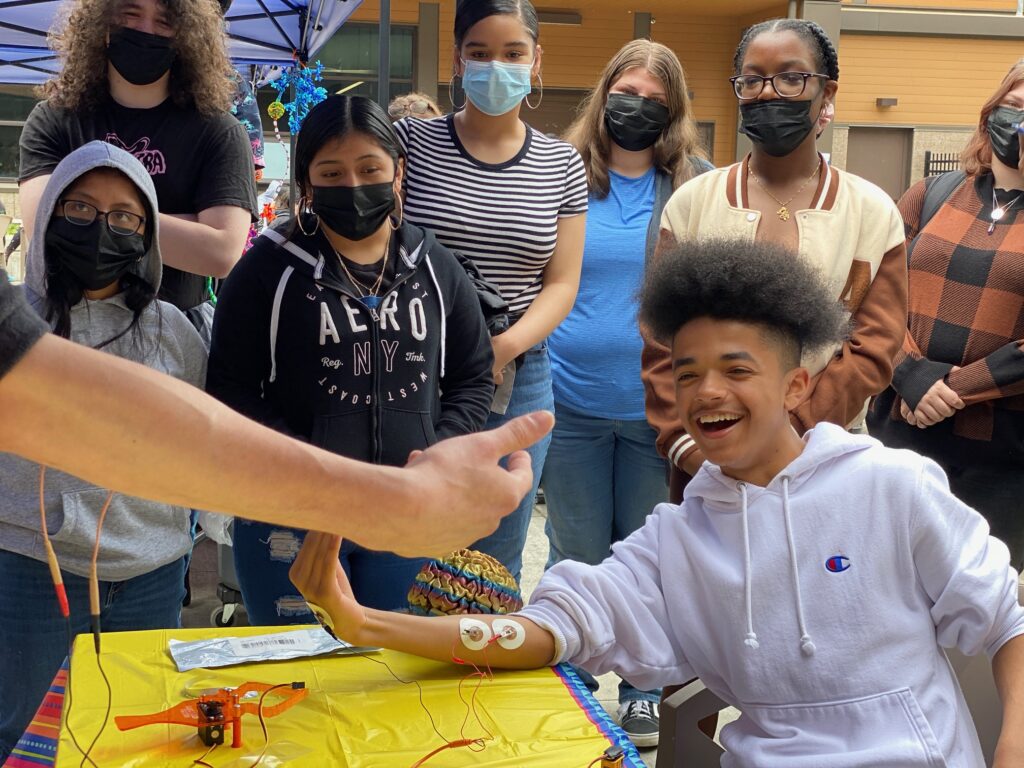
Eager to learn more, Vincent was kind enough to let me interview him regarding his interests and knowledge of psychology and neuroscience. When I asked him what he likes most about studying neuroscience, he shared with me his particular interest in the chemicals, including neurotransmitters and hormones, found within the brain.
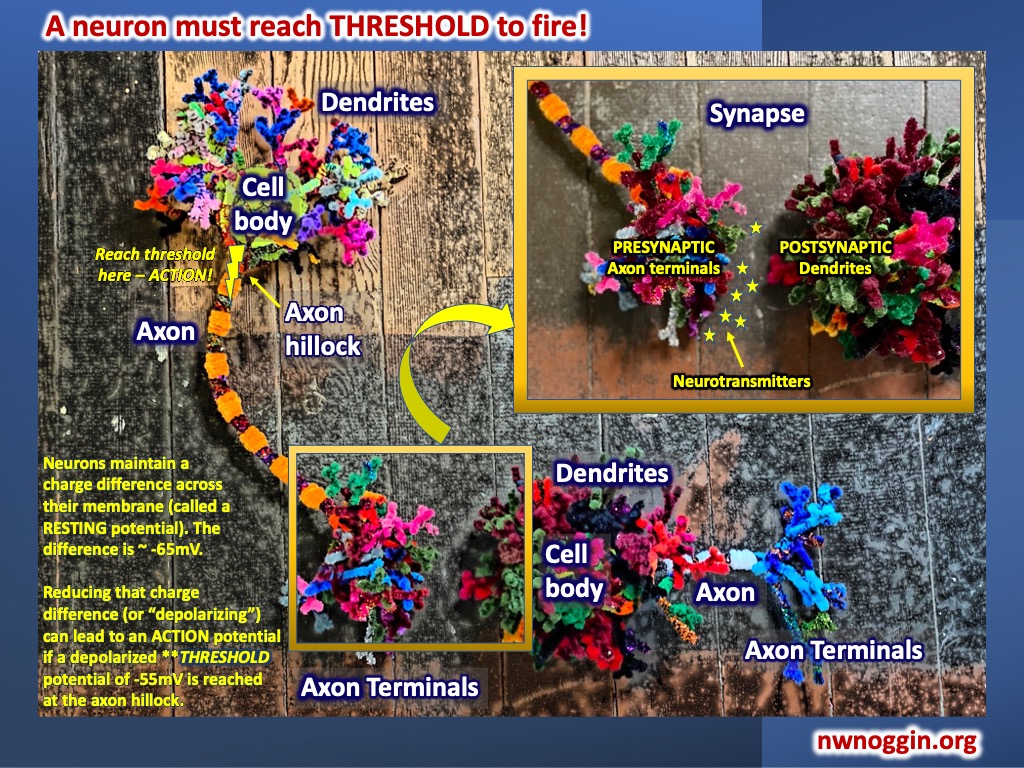
“I want to learn about what makes people different,” he explained.
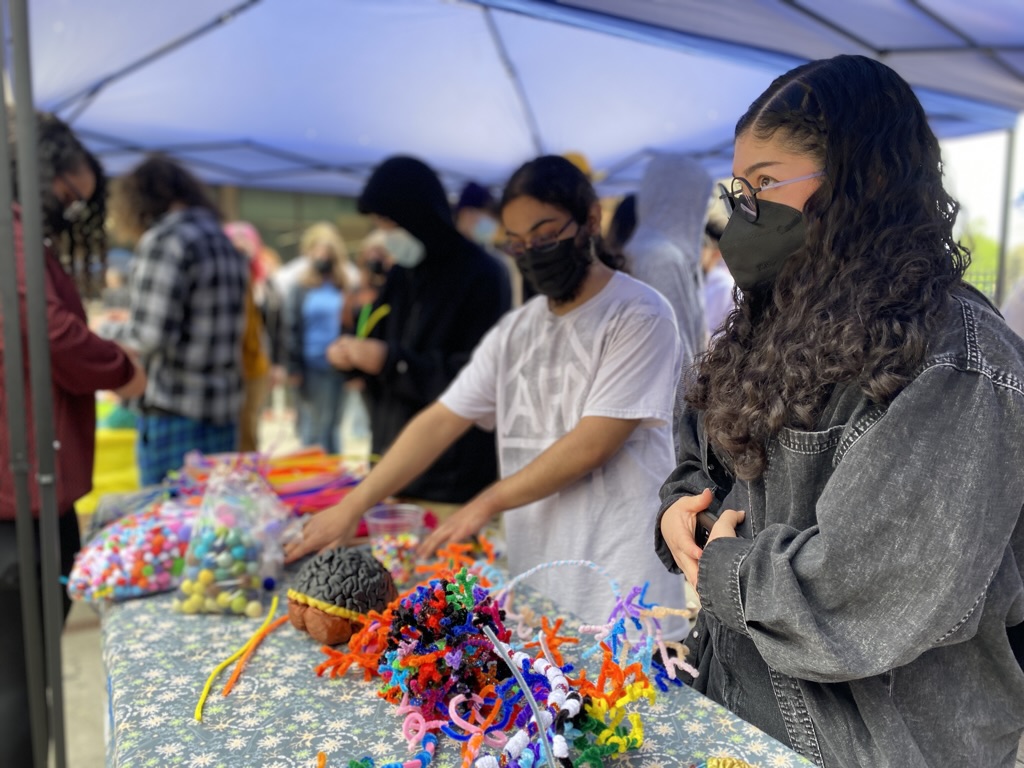
“Like, why do some people behave differently than others? What makes people struggle?”
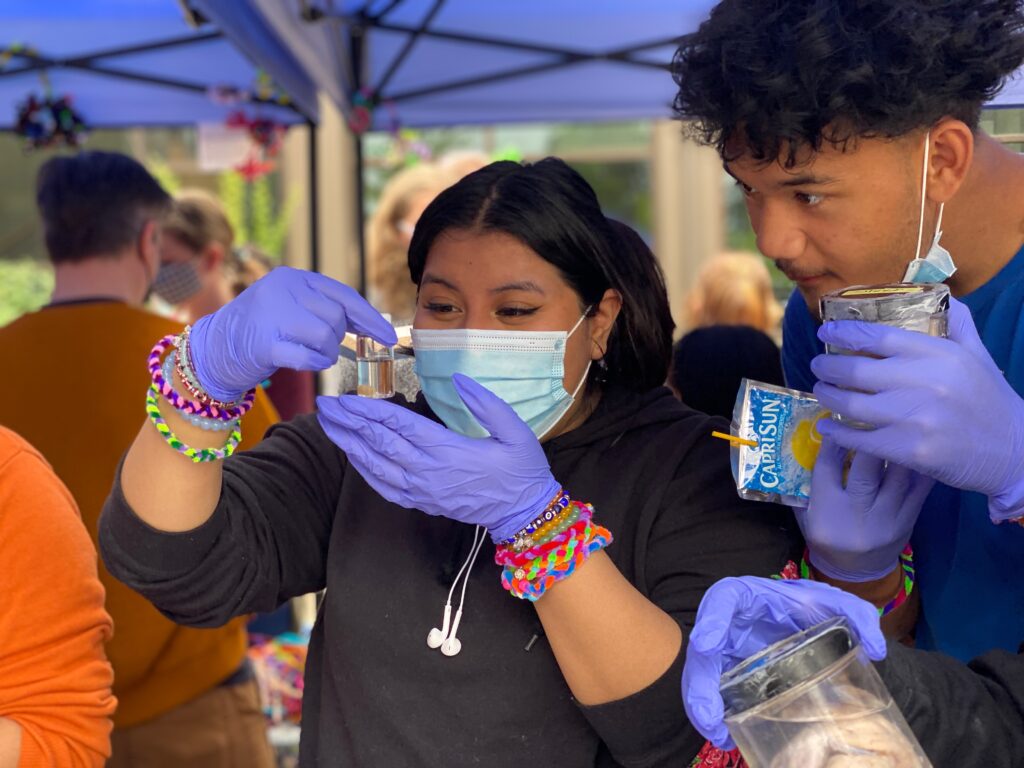
These same questions motivate me – and clearly many other people as well!
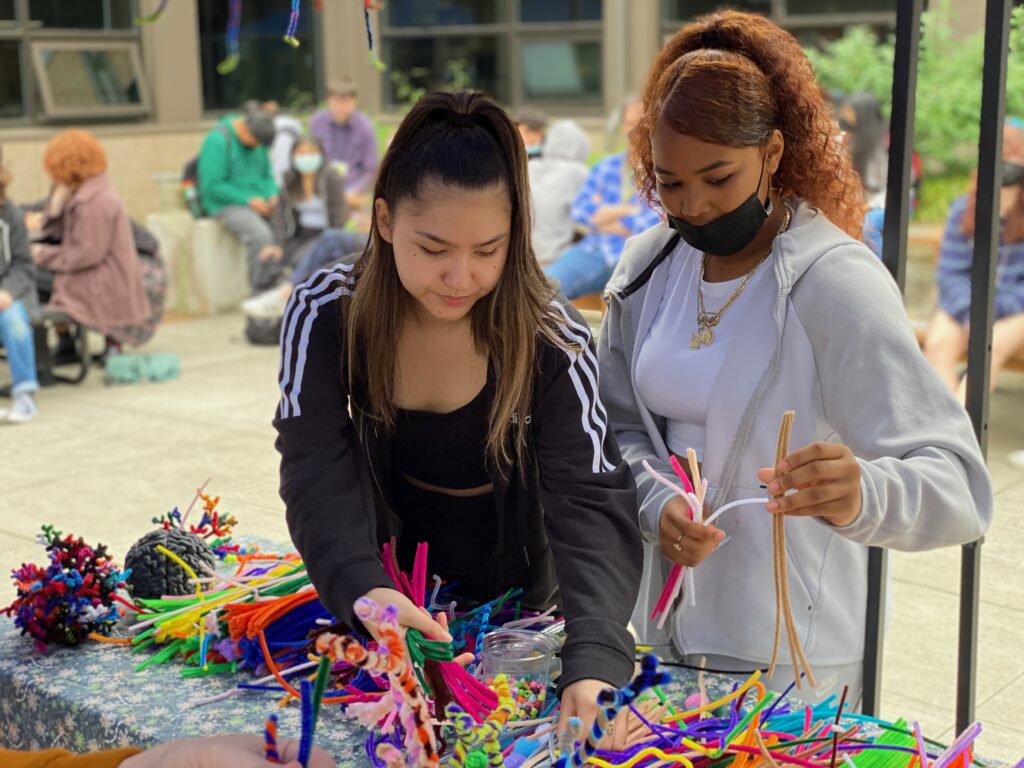
I appreciated Vincent’s honesty and openness when discussing why these areas are of particular interest to him. When asked what his favorite part of the brain was, he was very quick to answer with the angular gyrus! “It’s good for calculating numbers,” he said, pointing to the exact location of the gyrus on one of our model brains.
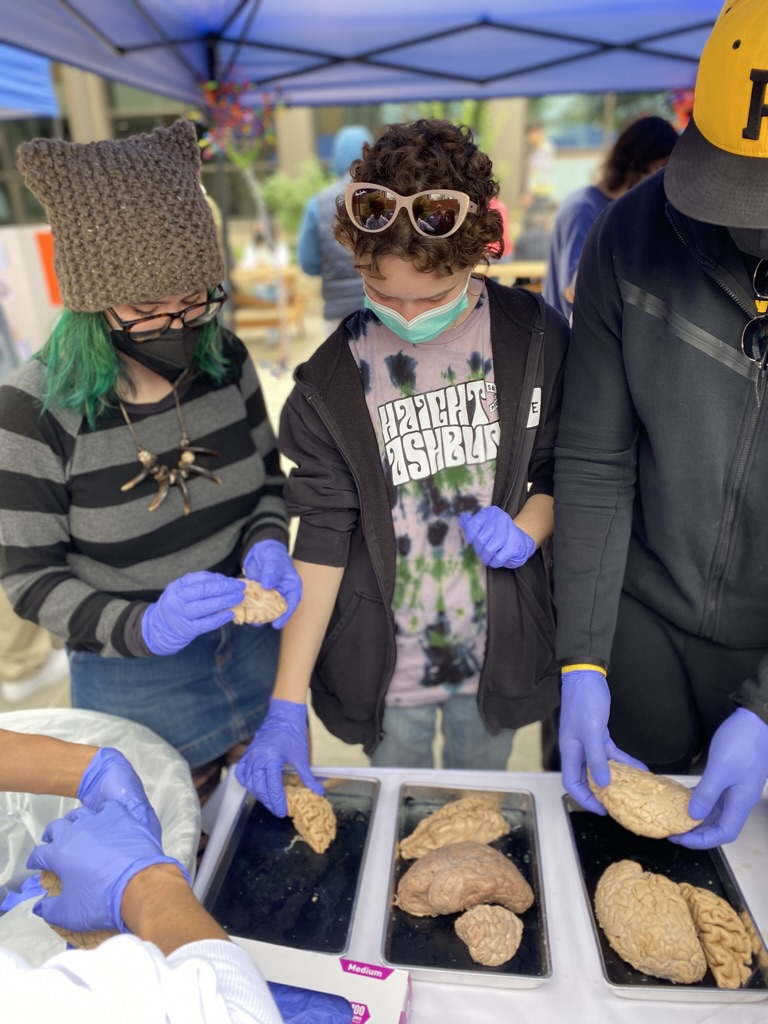
LEARN MORE: The Angular Gyrus
LEARN MORE: The angular gyrus: multiple functions and multiple subdivisions
LEARN MORE: Symbol processing in the left angular gyrus: evidence from passive perception of digits
LEARN MORE: The role of angular gyrus in modulation of visuospatial attention by mental number line
Vincent seemed especially curious about how people plan and strategize for different goals, and how he is always in search of optimal strategies and solutions, with a heavy focus on efficiency. To say the least, I was incredibly impressed with Vincent’s knowledge and curiosity to optimize his brain and learn more!
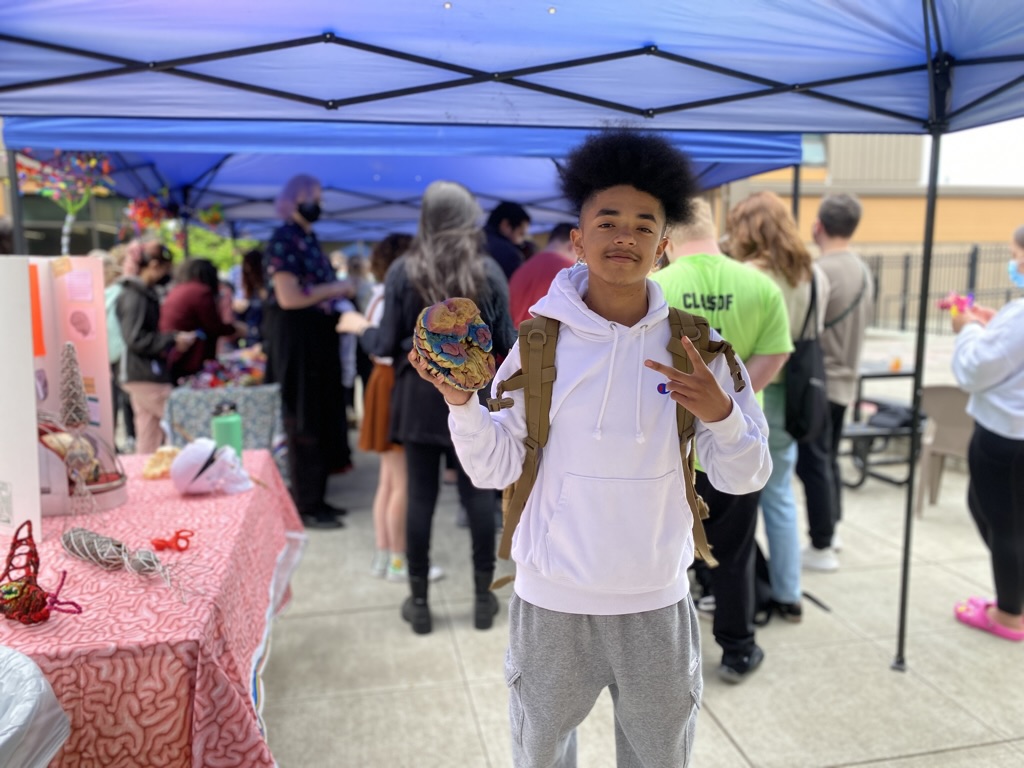
I was also able to interview Ezra Whitman, the Academic Coordinator and Instructional Specialist for the Bridge for Resilient Youth in Transition (BRYT) Program at Roosevelt. Ezra played a key role in ensuring that our visit took place, and we are incredibly grateful to him for all his organizing and hard work!
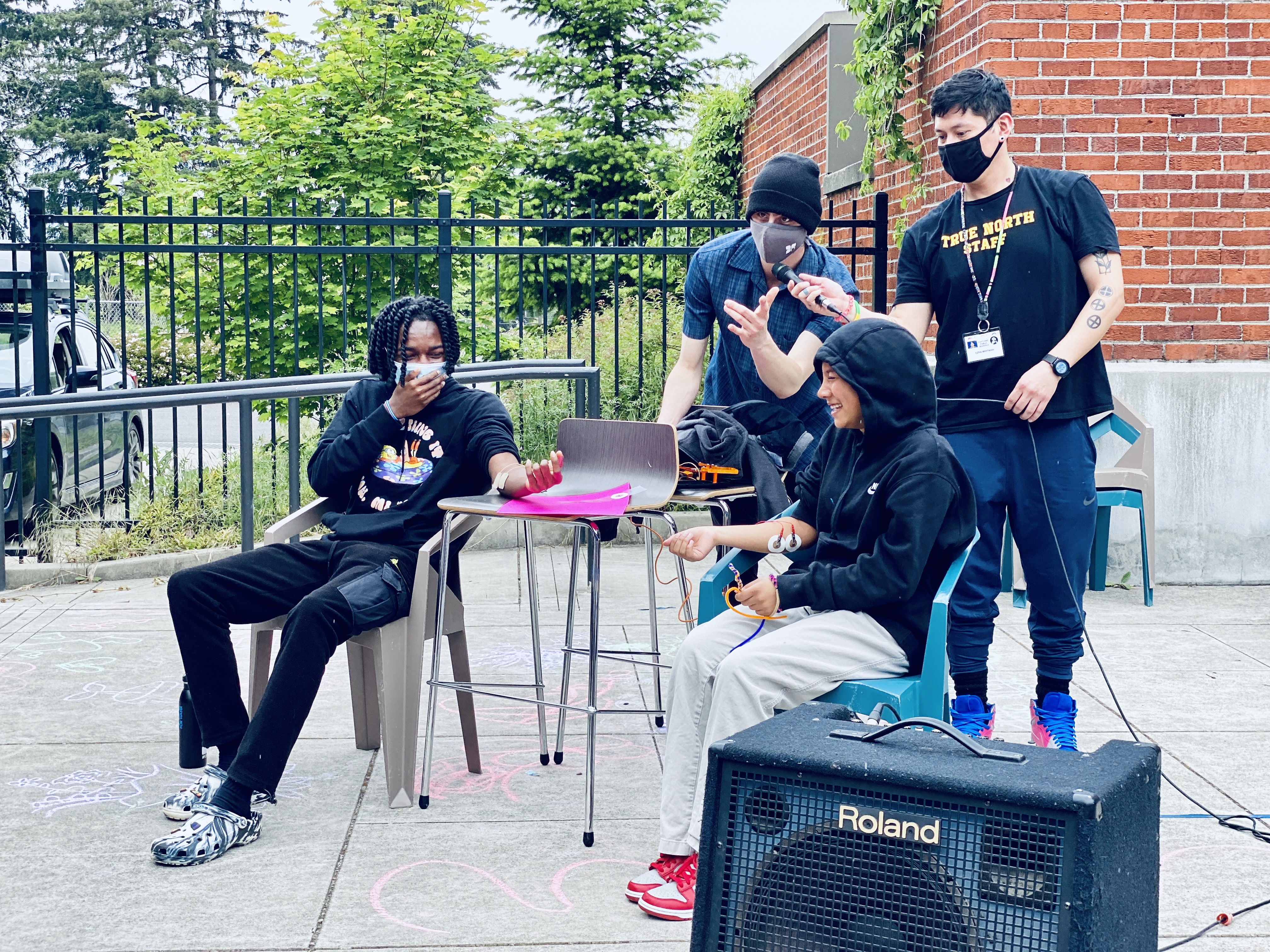
I asked Ezra what he thought the students enjoyed the most about our visit.
“They really enjoyed learning about what is tangibly ‘the brain’.”
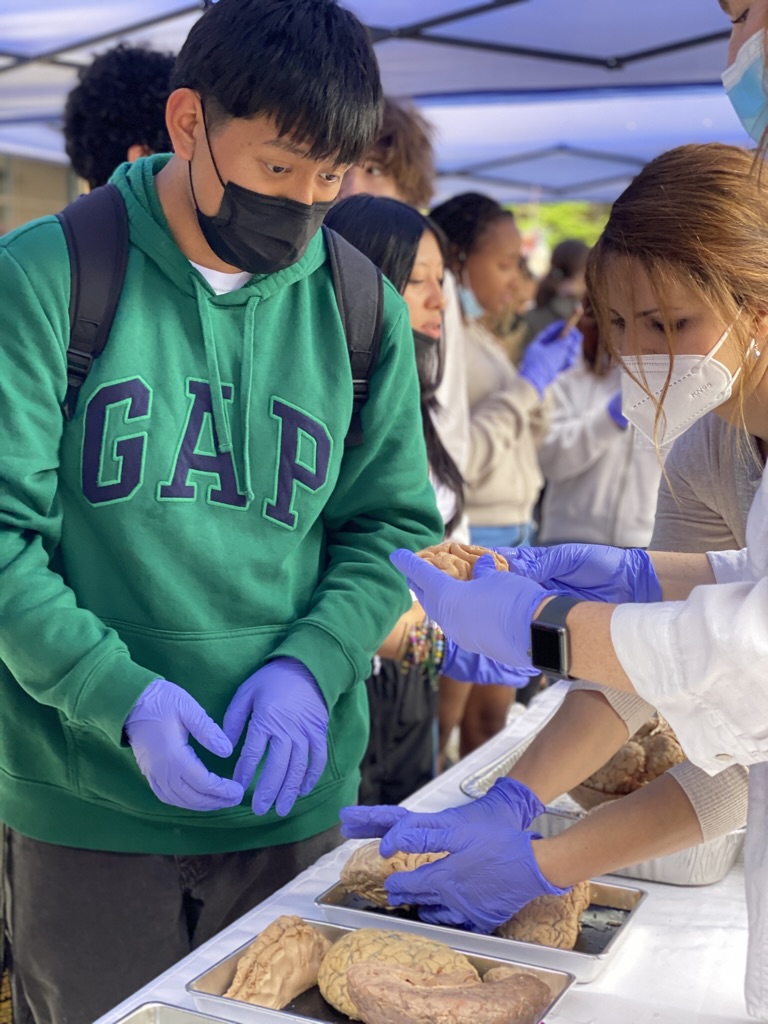
He told me how much the kids enjoyed holding a real human brain. It seems that we had a lot of kinesthetic learners at this week’s event, as our brain tables consistently had a large crowd around them. And holding brains provoked so many compelling questions!
LEARN MORE: Caring for Concussions
LEARN MORE: A concussion is a type of brain injury
LEARN MORE: Cerebrospinal Fluid Leak
LEARN MORE: Cerebral Spinal Fluid Leak Disorders
LEARN MORE: Everything but guns
LEARN MORE: Traumatic stress: effects on the brain
LEARN MORE: Neurobiology of fear and specific phobias
Ezra went on to tell me more about what the students enjoyed the most.
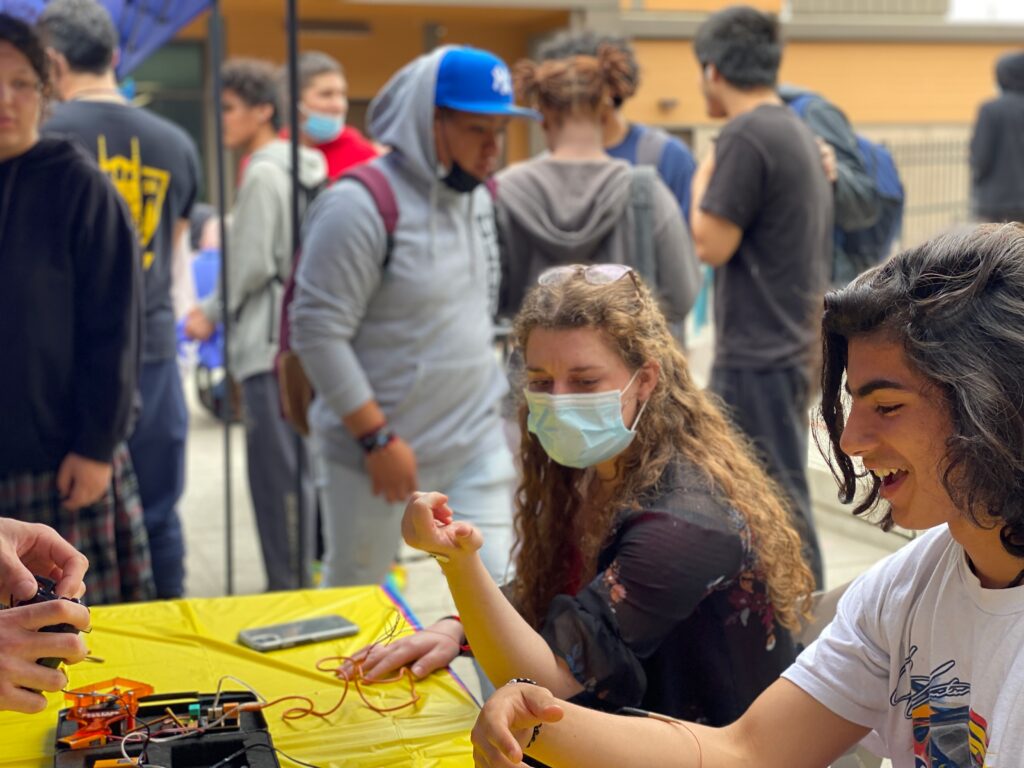
“They really enjoyed the neuro-simulator device as well, because it was so tangible and intriguing. They spend their days in class listening to concepts, but don’t often get the chance to see and feel what learning is.”
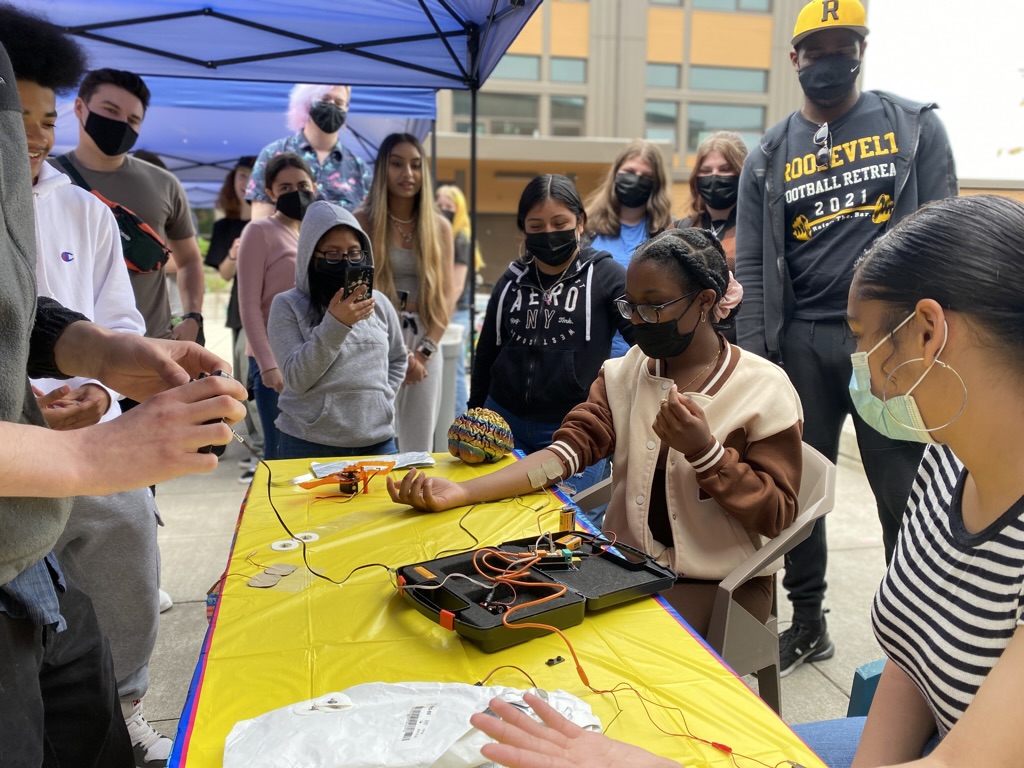
I definitely agree with Ezra on this, as our ‘Human to Human Interface’ (from Backyard Brains) table, run by Aaron Eisen from OHSU, was very popular!
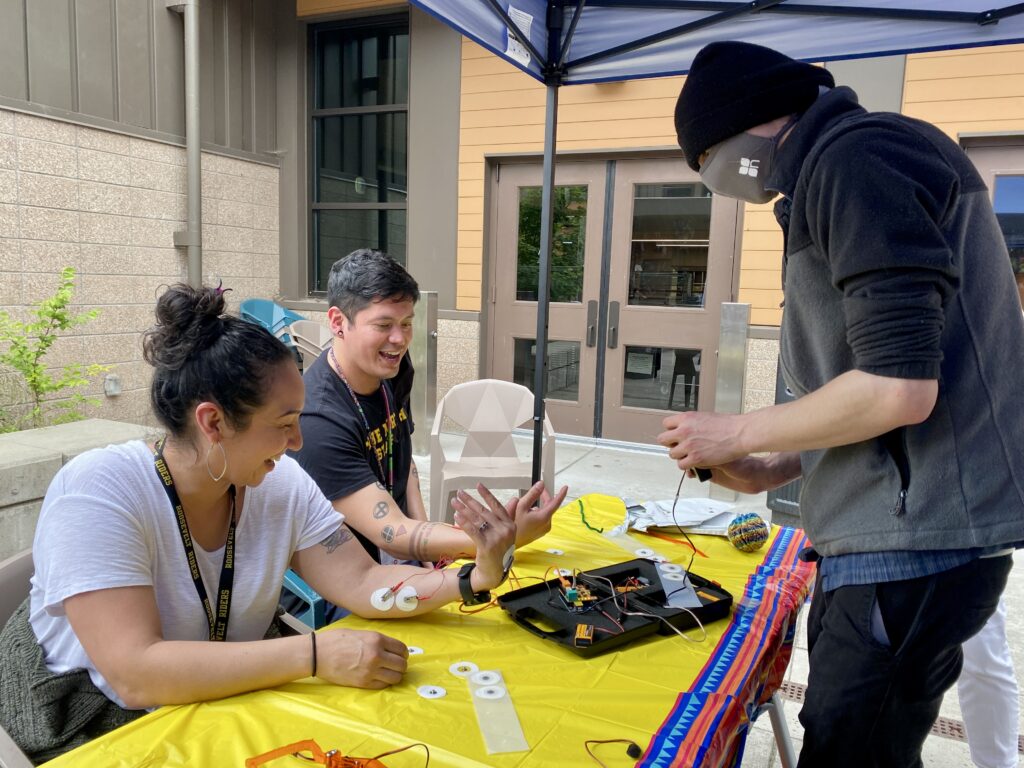
This intriguing little device allowed students to briefly ‘take control’ of their fellow peers. The students had a lot of fun with this, as did our Noggin team and the Roosevelt faculty as well!
LEARN MORE: Brain Hacking is Electric!
To close our interview, I asked Ezra if he had learned anything new himself from this event.
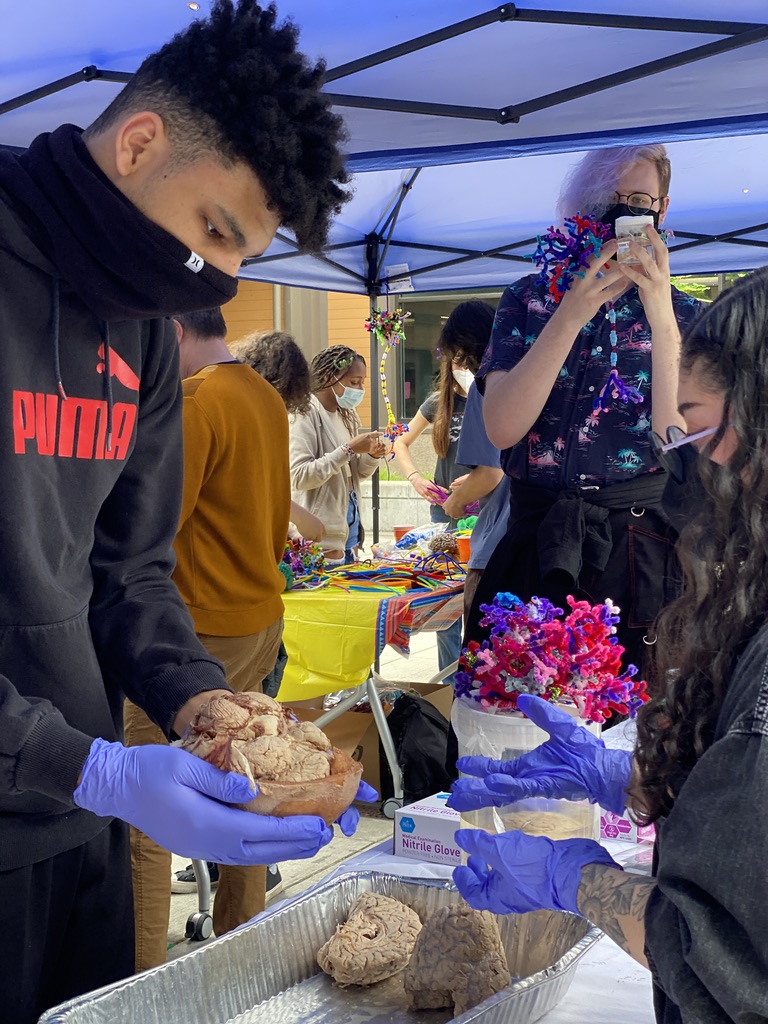
“Personally, I learned about the precious functioning of a few students who engage with materials in ways I look forward to supporting as a staff member, and am forming ideas around what we need to do to better support students who may function differently.”
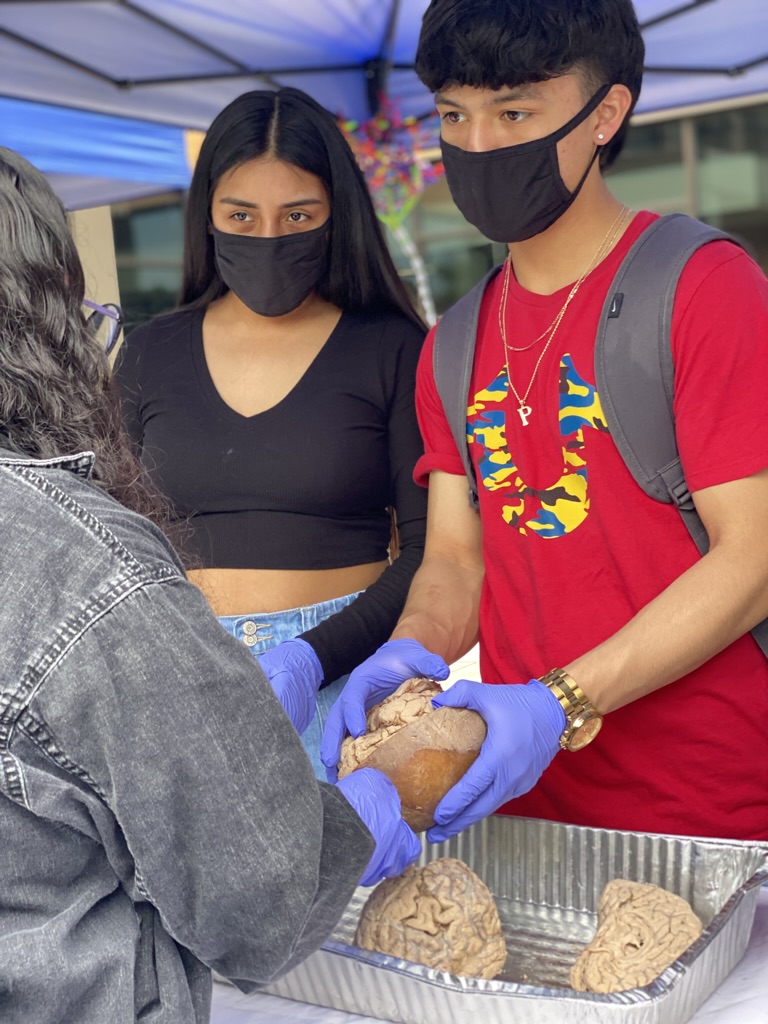
I noticed a variety of different learning styles at Roosevelt and was very grateful to see how supportive the students were of one another, as well as the incredible support and encouragement from faculty.
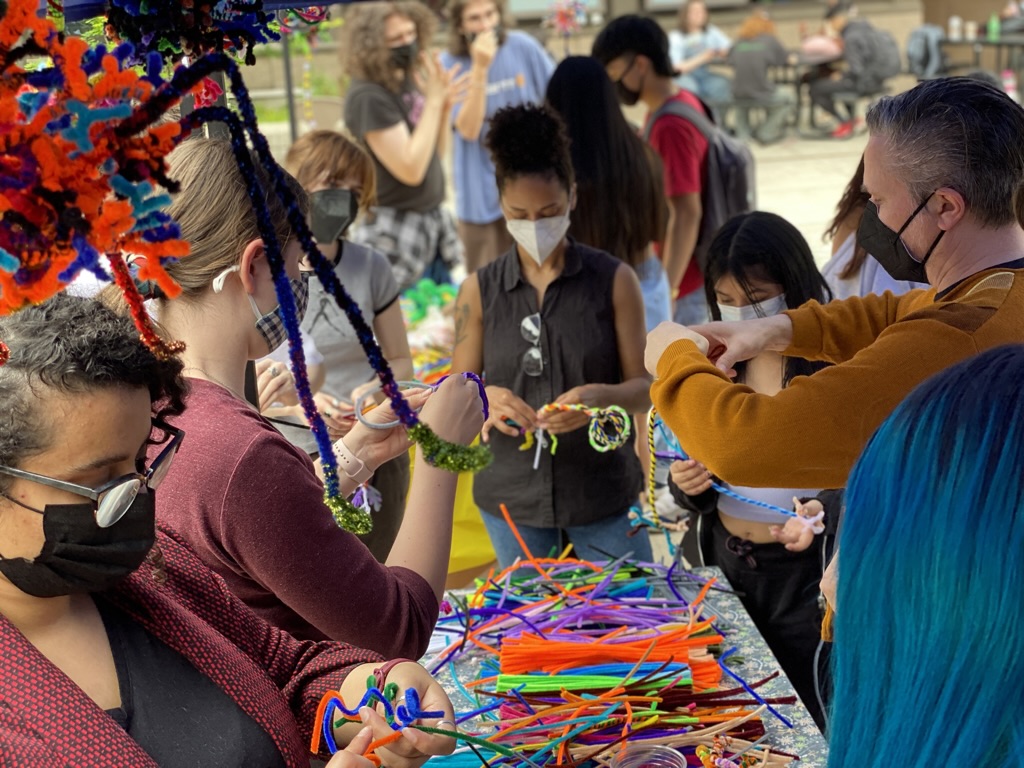
Visiting Roosevelt was so much fun and I cannot express how much my peers and I appreciated the enthusiasm and curiosity on display. Thank you to Vincent, Ezra, and all the other students, teachers and staff. We look forward to heading True North again!


